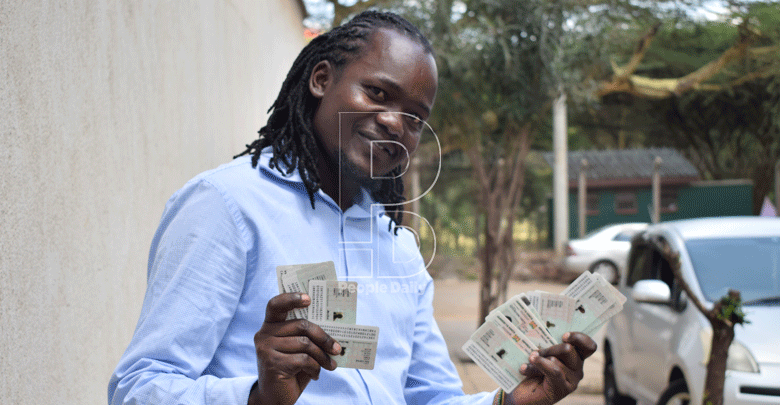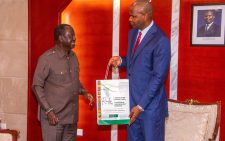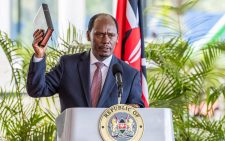My mission is to have families off the street

Milliam Murigi @millymur1
Every day, Peter Ndiboe, 38, wakes up at 4am to prepare for work. But unlike others who wake up this early to go to the office, Peter neither has an office nor is he employed.
His work involves going around the streets of Nairobi and its environs and working with street families.
He is the founder of Zero Street Child Foundation (ZSCF), a charitable trust organisation registered in Kenya specialising in meeting daily basic needs and social necessities of street families.
“Zero Street Children Foundation promotes a general collective community street-child sustainable development alternatives and innovative based solutions,” he says.
Before founding the organisation, officially registered in 2017, Peter was a street boy who spent his early years misusing drugs and making money by busking on the street.
He later reformed and now helps street families by rehabilitating those who are willing, starting businesses for others and helping them access identification cards, one of the fundamental documents in our country.
His charity work dates back to 2007 when he started his first initiative: giving food and clothes to street families.
Then it was just a way of giving back to the street community after his recovery and had no intentions of forming an organisation.
In 2012, he started yet another initiative, “Business on your pocket” to empower street families.
With this initiative, he used to start small businesses worth Sh2,000 or less for the street persons yearning for such an opportunity.
“For anyone to benefit from the second initiative we used to vet them and this is when I realised that most street families didn’t have identity cards for one reason or another.
I saw the need to intervene since, without this fundamental document, it is difficult for one to access employment opportunities and improve their lives.”
This is how his third and most powerful initiative for his foundation—securing IDs for the street families—was borne later in 2012.
So far he has managed to secure and issue about 38,600 IDs to street families not only in Nairobi, but also in other counties.
For a start, after approaching the authorities and pitching his idea, he was allowed to run a pilot project where he was supposed to bring at least 100 street persons together and get all the required documents for them to be issued with the ID.
“It was and has not been an easy journey since most of these families lack required documents such as birth certificates, considering many children born on to the streets do not have their births registered.
I had to go back and renegotiate so that at least they can be allowed to get their cards without these documents,” Peter explains.
Rescue centre
After several meetings with the authoritiesy, his wish was granted, and now for a street person to get an ID s/he only requires his/her name as well as their mother’s name and their date of birth.
And to ensure that all street persons eligible to get an ID haven’t been left behind, he holds meetings twice a week where he collects at least 140 names every day ,which are then forwarded to the right department for the ID’s to be processed.
“I only deal with Kenyans who are on the street, no foreigners are considered. I use my fingerprints for all the ID’s as per our agreement with the government.”
Apart from all this, he has also established a rescue centre in Kiambu to rehabilitate street children willing to change and be reintegrated back to the community. So far around 113 children have been rescued and reintegrated. However, 14 have gone back to the street.
“Our foundation’s vision is to have zero street children and families by 2030. That is why I am trying to empower most of the street families we are working with.
I have realised that once they are given an opportunity, most of them are willing to leave the streets.
That is why one of our plans is to have a bigger and better centre where we can house these families as we equip them with different skills,” he adds.
At the rescue centre, a team of eight reformed youths works there permanently, recycling old mobile covers and make new ones in a project started to make sure not only are those rescued gaining some skills, but also the organisation has a project for its sustainability.
“Though I would like to do more, I am always limited by funds. Currently, all our initiatives are funded by well-wishers.
If we could get some donors, I have a lot more I would like to do for our street community to ensure that we can achieve our dream of zero street children and families by 2030,” Peter says in conclusion.












